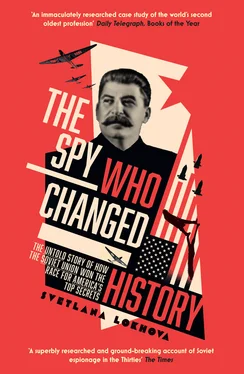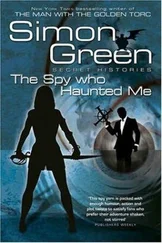The development in Russia has been so rapid that usually even after new industries have been established the training of the Russian labour has been so inadequate that they cannot run them. A tractor factory that was supposed to have turned out 100,000 tractors per year has turned out not over 2,000 in six months, and none of these would run more than 4 or 5 days without falling apart, solely because of the lack of training on the part of the workers. 10
Earnestly Klivans explained that the Soviet Union was still very much a work in progress, not the finished article. Her students were now on the way to America in order to learn the skills to train Russian workers to drive the industrialisation programme. In Russia, she exclaimed, engineers were rated highest among the professional men, the value placed on them three times greater than that of a doctor. She adroitly turned the reporters’ dumbest questions to her advantage to explain the sacrifices required from the Russian people today for a brighter tomorrow: ‘There are no sleepless nights for Russian families, for no coffee is served. Food of the type familiar to us is impossible to obtain. Most of it is shipped to foreign countries, and the proceeds go towards purchasing machinery for the Soviet factories. Wheat, fish and the like are extensively imported, however, as are fine wines.’ 11And the Russians, Miss Klivans declared, actually liked work. But few in the US cared to listen.
The readers of the newspapers were evidently hungry for news about the mysterious Soviet Union, a society with an answer to the world’s problems. No doubt they were confused by the conflicting accounts trickling out of Moscow. Jack Hayward, another correspondent, reported, perhaps untruthfully, in the same edition of the newspaper that when a Russian went shopping in Moscow, he was likely to find that his cheese purchase was made of wood; delicious. Klivans confirmed to readers that despite the ongoing effects of the Great Depression, standards of living were still higher for the majority in the United States than in Russia. But the gap was closing. The Ulanovskys, two ‘illegal’ Military Intelligence agents already embedded in New York at the time, agreed. They had witnessed first hand the conditions of the unemployed, homeless families in the shanty towns known as ‘Hoovervilles’ set up on the Great Lawn at Central Park and Riverside Park at 72nd Street in New York City. These Russian patriots arrived knowing that America was the classic country of capitalism,
the most disgusting in the world, and we sought to see all the evils of capitalism first hand quickly, and we found a lot of it unattractive … We saw the unemployed in line for soup, which was distributed by the Salvation Army. But the unemployed in the queue in 1931, during the Depression, were dressed better than my Moscow friends. We went looking in vain for a slum. 12
• • •
But why was there such an intense American interest in news from the first Communist state? The answer lay in the grim, fatalistic mood of the US at the time. Trapped in the midst of the Great Depression, perhaps they were witnessing the death of the American dream itself. Like many of her generation, Gertrude Klivans had, through her travels, come to question the very future and purpose of liberal democracy and capitalism. She had discovered a ‘Soviet atmosphere, an atmosphere strangely free from the tradition of that brand of democracy to be found in the West’. 13
The Communist state’s giant socialist experiment polarised US public opinion. Most US visitors to the Soviet Union returned home with their views reinforced. Those who had come seeking alternatives to the raging social crisis in depression-hit America found hope in the socialist experiment; others who sought it found deprivation, oppression and a rising red menace. Enthusiasm in liberal and left-leaning circles for Communism tracked the ups and downs of the US economic cycle. Initially, the Russian Revolution had been greeted with wild enthusiasm, although US banks lost billions on the default of Tsarist debt. ‘I have seen the future, and it works,’ 14proclaimed American journalist Lincoln Steffens, who was targeted by Soviet Military Intelligence in 1931 for possible recruitment as an ‘agent of influence’. The Soviets approached many leading left-leaning cultural figures in this period to play an active role as advocates for socialism. Most rebuffed the approaches. Some did not. Steffens refused to join up, but as an ideologically sympathetic fellow traveller, he promised to help the Soviet Union when the interests of the US and the USSR coincided.
In the 1920s, as the US economy prospered in the post-war recovery, the Soviet Union had been roundly criticised by visiting international socialists for its failings. Despite thousands of invitations to sympathetic left-leaning artists, writers and politicians to visit, the Russians could garner few friends. Some criticised the Soviets for insufficient radicalism, as they wanted a world revolution. Many found issue with the Communists’ belief that ‘the end justifies the means’. The Communists in power were too brutal for their taste. Lincoln Steffens on the other hand found convenient excuses for the bloody excesses of the ‘Red Terror’. He concluded that the Soviets were not evil per se but that dire circumstances had forced evil on them. ‘Soviet Russia was a revolutionary government with an evolutionary plan enduring a temporary condition of evil, which is made tolerable by hope and a plan.’ 15
In bohemian circles, there was still much praise for Moscow’s artistic freedom, avant-garde theatre, movies and poetry. As the US economy boomed in the 1920s, intellectual socialists were out of touch with the day-to-day issues of the working class. It was only during the crisis of the 1930s that the Soviet Union and Communism started to enjoy broader US support and clandestine help. The crisis of capitalism and the rise of fascism (seen by the left as capitalism with murder) proved to be the catalyst for the growth of the US radical left. Marx’s theory of historical determinism was in vogue.
• • •
The closing of all American banks on 4 March 1933 marked the nadir for capitalism as the entire nation went into a state of traumatic shock. The illusion of permanent prosperity that had captivated and motivated everyone during the boom evaporated. The deepening economic crisis caught intellectuals such as novelist Theodore Dreiser and socialist writer Upton Sinclair unawares, but they soon recovered to take the lead in asserting that American capitalism was undeserving of support or survival. From 1930 onwards there had begun a quest that took many on a journey leading far from their social, political and philosophical starting points. Along the way some fell into the waiting arms of Soviet intelligence. This was the era when Communists joined the US government, not just to gather useful information for their Soviet controllers but also to influence government policy for Communist ends. Dozens of agents such as Nathan Silvermaster, Lachlan Currie and Harry Dexter White found careers in government service, in particular in the Treasury and the Labor Department.
The battering of the Great Depression dispelled political apathy. No one could remain indifferent to the capitalist system that was creating havoc and misery. Liberalism was the first political casualty of this political awakening. Its spokesmen had failed to foresee the catastrophe and, the radicals believed, were unable to explain its causes, cope effectively with its consequences or offer answers. In their search for a solution many turned their eyes abroad. If the Russians were achieving full employment and economic growth with their backward technology, surely the Americans could do far better with their advanced facilities? In the US, the factories were built but now lay idle, so the priority was a plan for the economy to put America back to work. The leftward move, coupled with the feebleness of right-wing opinion at the time, made the Communist movement the unchallenged attraction. The starry-eyed saw a promised paradise in the land of the Five-Year Plans, while the more grounded were impressed by the achievements of a planned economy operated on the foundation of nationalised property. A Soviet-style economic policy might provide the means of propelling the US economy forward, eliminating the scourge of mass unemployment.
Читать дальше












